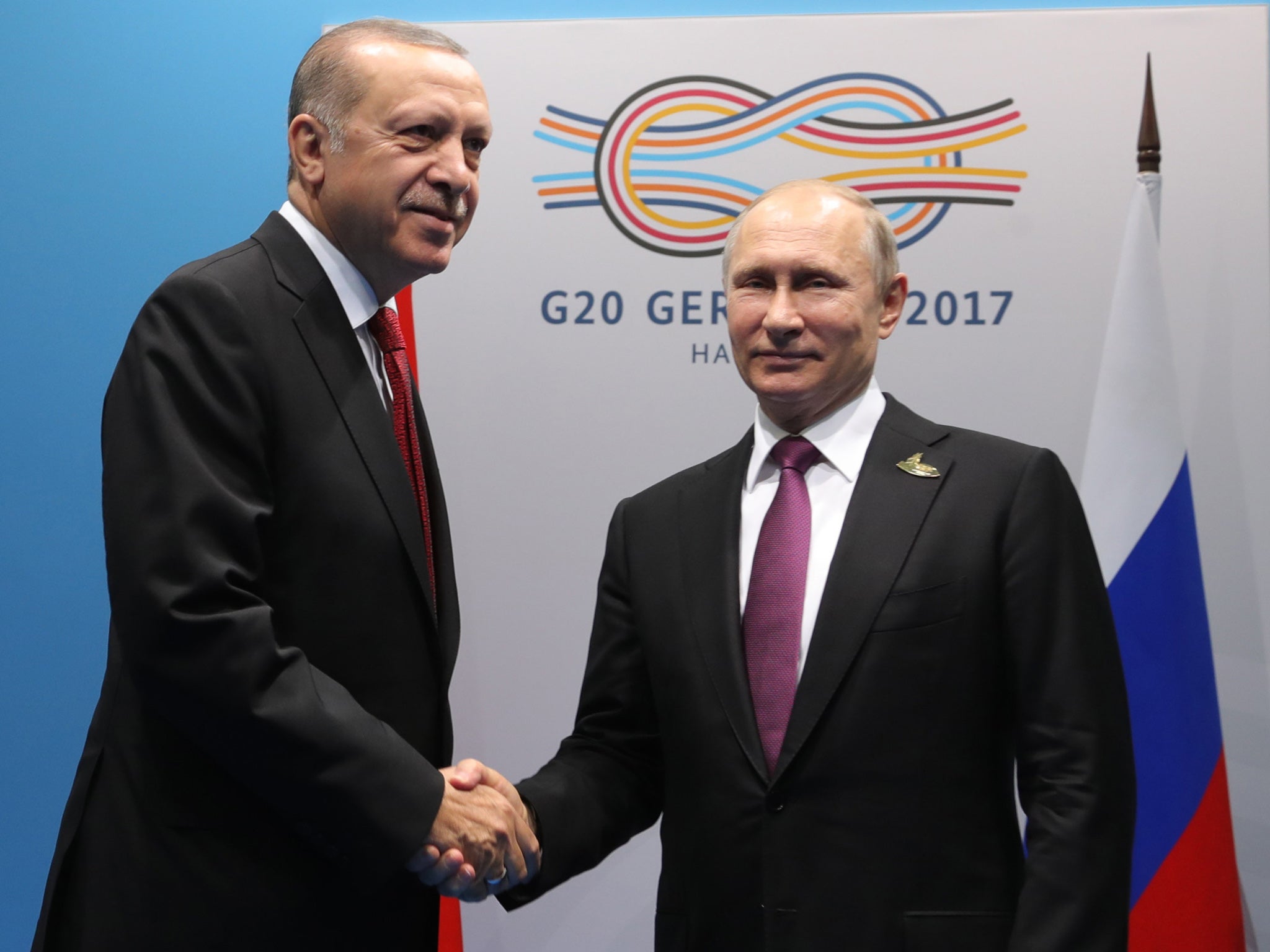Nato's second biggest army just bought nearly £2bn of weapons from Russia
Turkish President Recep Tayyip Erdogan says Western arms were too expensive

Your support helps us to tell the story
From reproductive rights to climate change to Big Tech, The Independent is on the ground when the story is developing. Whether it's investigating the financials of Elon Musk's pro-Trump PAC or producing our latest documentary, 'The A Word', which shines a light on the American women fighting for reproductive rights, we know how important it is to parse out the facts from the messaging.
At such a critical moment in US history, we need reporters on the ground. Your donation allows us to keep sending journalists to speak to both sides of the story.
The Independent is trusted by Americans across the entire political spectrum. And unlike many other quality news outlets, we choose not to lock Americans out of our reporting and analysis with paywalls. We believe quality journalism should be available to everyone, paid for by those who can afford it.
Your support makes all the difference.Turkey has signed a deal with Russia to buy nearly £2bn worth of anti-aircraft missiles.
Recep Tayyip Erdogan said they the country had already paid the deposit following the deal which is estimated to be worth $2.5bn (£1.9bn).
The deal is likely to raise eyebrows among Ankara’s fellow Nato members as they are supposed to only buy compatible weapons systems from other members.
Turkey has the second-largest military force in Nato, after the US, but it has been drifting away from other members of the alliance since the government began its brutal crackdown on dissent following the failed coup last year.
Ankara also objects to some other Nato members’ military support for Syrian Kurdish rebels who they believe are linked to rebel Kurds within Turkey.
Russia says the S-400 system has a range of 248 miles and can shot down up to 80 targets in one go.
Moscow first deployed its own S-400 at its air base near Latakia in Syria in December 2015 after Turkey shot down a Russian Su-24 warplane on the Turkish-Syrian border.
The incident led to six months of diplomatic strife between Mr Erdogan and Russia's President, Vladimir Putin. But both sides began to cooperate last year in the face of Western opprobrium for their policies at home and abroad.
Mr Erdogan told Turkish newspaper Hurriyet that his Western partners were “seeking enormous amounts of money” for military hardware and the armed forces had killed 90 Kurdish “terrorists” in the past week using Turkish drones because the Western models were too expensive.
“It’s us who will make decisions regarding our independence. We are responsible for taking security measures for the defence of our country,” he said.
Relations between Nato and Russia remain fraught, with both sides ramping up military exercises and extending troop deployments along border areas in Eastern Europe.
Last week, Nato Secretary General Jens Stoltenberg said the world was more unpredictable now than it has been at any point in his 30-year career.
He said: “It is more unpredictable, and it’s more difficult because we have so many challenges at the same time.
“We have proliferation of weapons of mass destruction in North Korea, we have terrorists, instability, and we have a more assertive Russia. It is a more dangerous world.”
Join our commenting forum
Join thought-provoking conversations, follow other Independent readers and see their replies
Comments